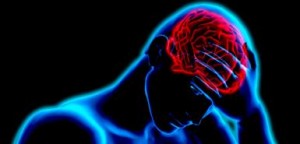Religious emotions and believes have often been linked to a capacity to deal with pain, as those images of Philippine men being willingly crucified during religious festivals so well demonstrate. But although changes in pain sensitivity during a religious experience are well documented, the exact psychological or/and neurological reasons of the phenomenon are unclear and, as such, have now become the aim of an investigation by a group of scientists, philosophers and psychologists from the University of Oxford. The research, to be published in the next edition of the journal Pain1, reveals, for the first time, that religion-associated pain resistance is linked to the activation of the brain right ventrolateral prefrontal cortex (VLPFC), an area associated with both cognitive down-regulation of pain and reassessment of the emotional meaning of an experience – for example by giving a neutral or even positive meaning to a noxious experience, and so making it much easier to cope with. The research contributes for a better understanding of pain coping mechanisms, and, consequently, can put us closer to new and better therapies for pain, but also might help to comprehend how cultural influences, such as religion, can affect the development and use of the different parts of the brain. And it does give an extra meaning to the saying “faith helps through life’s pains”… [continue reading…]
Pain
 Pain is a simple enough concept to grasp. You stub your toe, shout, perhaps utter a few expletives, rub it better and it eventually fades. But neuroscientists are realising that pain is much more complex than anyone thought possible, comprising not just physical sensations, but emotional ones too. Pioneering studies are providing insights into why some people experience debilitating chronic pain long after an injury has healed, as well as why some are more prone to pain than others, and why certain people never recover from bereavement. Continue reading…
Pain is a simple enough concept to grasp. You stub your toe, shout, perhaps utter a few expletives, rub it better and it eventually fades. But neuroscientists are realising that pain is much more complex than anyone thought possible, comprising not just physical sensations, but emotional ones too. Pioneering studies are providing insights into why some people experience debilitating chronic pain long after an injury has healed, as well as why some are more prone to pain than others, and why certain people never recover from bereavement. Continue reading…A recent University of Iowa study reveals a biological link between pain and fatigue and may help explain why more women than men are diagnosed with chronic pain and fatigue conditions like fibromyalgia and chronic fatigue syndrome.Working with mice, the researchers, led by Kathleen Sluka, Ph.D., professor in the Graduate Program in Physical Therapy and Rehabilitation Science in the UI Roy J. and Lucille A. Carver College of Medicine, found that a protein involved in muscle pain works in conjunction with the male hormone testosterone to protect against muscle fatigue.
Chronic pain and fatigue often occur together — as many as three in four people with chronic, widespread musculoskeletal pain report having fatigue; and as many as 94 percent of people with chronic fatigue syndromes report muscle pain. Women make up the majority of patients with these conditions. [continue reading…]
Feb. 3–Depression and pain are the two main causes of addiction in the elderly. according to Dr. Susan K. Blank, vice president of clinical services for Caron Treatment Centers of South Heidelberg Township. [continue reading…]

